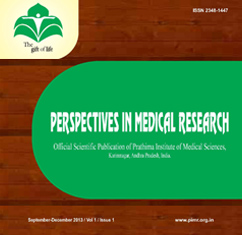Cultivating ethical excellence: integrating Attitude, Ethics, and Communication (AETCOM) in medical education for undergraduate students.
Keywords
Ethics is knowing the difference between what you have a right to do and what is right to do.
-Potter Stewart (1915-1985). 1
Today, when doctors and healthcare workers learn about ethics (what's right and wrong in medicine), they often look back at many important historical papers, such as the Nuremberg Code, which took birth as a result of the Doctors' trials of 1947. Documents like these have been an ethical compass for generations of healthcare professionals. Ethical reasoning is becoming more important for medical students as they deal with situations from the beginning of a life to complex end-of-life care.
Medical ethics around the world are getting better, and Indian is keeping pace with it. The National Medical Commission, earlier known as Medical Council of India, have been updating the undergraduate and postgraduate guidelines regularly to suit the demands of changing medical and healthcare needs in Indian and abroad. 2
The undergraduate medical education program by the NMC is being designed with a goal to create an "Indian Medical Graduate" (IMG) possessing requisite knowledge, skills, attitudes, values and responsiveness, so that she or he may function appropriately and effectively as a Physician of first contact of the community while being globally relevant. In line with these objectives, the NMC has introduced innovative teaching methods, such as the AETCOM Module, focusing on Attitudes, Ethics, and Communication. 2, 3 These modules offer a framework for teaching ethics and are integrated into the entire four-year MBBS curriculum, enabling students to develop ethical decision-making skills across various contexts, from basic science to clinical practice. 4, 5, 6, 7
A hybrid problem-based approach is proposed in the AETCOM module document.Figure 1 This method focuses on interactive learning through real-life case discussion, split into two sessions with self-directed learning in between. 3
Challenges:
The journey of integrating ethics into medical education has not been without challenges. Some of these challenges include differences in how much students engage in longer learning sessions, a mismatch between how ethics is taught and how students apply it in real-life hospital situations, and the difficulty of instilling empathy in students for culturally sensitive issues like social stigma.

Proposed Framework to Address the Challenges:
-
Ethical Role Models: Real-life examples can be powerful in shaping ethical behavior. This could be achieved through guest lectures, internships, or mentorship programs. 8
-
Utilization of Real-Life Cases: Teaching ethical principles through real case studies is highly effective. It allows students to apply theoretical knowledge to practical situations.
-
Reflective Learning: It involves actively analyzing their own experiences, actions, and thoughts. This self-critique practice makes students apply ethical principles more effectively in their future.
-
Teaching Global Ethics: This encourages students to consider ethical perspectives from different cultures and regions, broadening their understanding of ethics.
-
Case Diversity: A diverse range of case studies from various fields and industries are to be given to the students. This exposes students to a wide array of ethical dilemmas and helps them develop a versatility in the mindset.
-
Feedback: This loop of feedback makes the curriculum remain relevant and effective.
-
Ethical Debates: Engaging students in ethical debates, such as those concerning life-sustaining treatments decisions, stigmas, taboos help them explore different ethical perspectives and develop their own ethical and critical reasoning skills. 9
In conclusion, the AETCOM modules provide a valuable and thorough framework for incorporating ethics education into the medical undergraduate curriculum. By using various teaching methods such as discussing real cases, role-playing, and reflective learning, these modules help future healthcare professionals develop important ethical skills.
Continuous integration throughout the MBBS course ensures that students not only learn about ethics theoretically but also apply them within specific medical fields. This ongoing exposure helps them improve their ethical-thinking abilities thereby build solid ethical and professional conduct.


